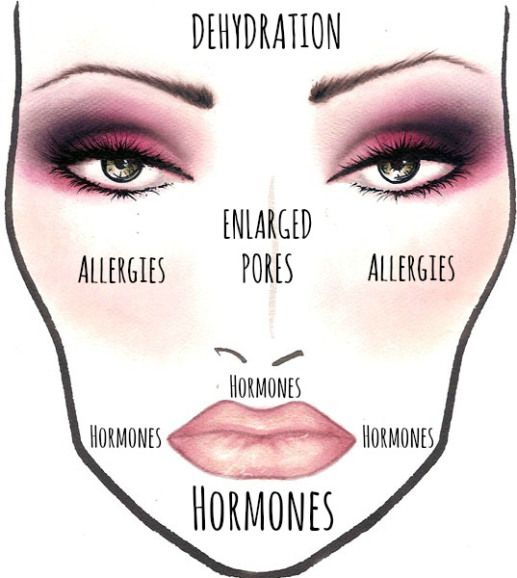Adult acne can be linked to issues with hormonal imbalance. In this case, the acne is actually a symptom of a much bigger problem. However, once you identify that a hormone imbalance exists, treating it, and getting rid of the acne becomes easier.
How does hormones lead to acne?
Hormones influence acne in women through the activation of the oil gland in the skin. These oils are produced to wash out dead skin cells and remove excess bacteria from the pores. Small amounts of this oil in the pores helps to keep them clean, and keeps our skin more flexible, youthful and fresh. The oil glands are activated by the production of testosterone, the male hormone (yes, even ladies produce this in small amounts). However, if you produce too much testosterone, too much oil is produced, which settles into your skin creating a blockage to the hair follicles and pores. The oils cannot drain and dead skin cells and bacteria become trapped, manifesting into a pimple.
How do you know if your acne is from a hormone imbalance?
Symptoms:
Irregular periods – Periods that don’t come regularly or heavy cycles, cramps and pain Low libido Fatigue, or lack of energy Brain fog Infertility Depression Weight gain
Where the acne appears on your face:
Mouth Chin Jawline
Hormonal imbalance causes:
Emotional and physical stress – this can elevate cortisol levels Genetics Birth control Certain medications Synthetic hormones found in plastic Diet Certain health conditions such as hypothyroidism and polycystic ovary syndrome (PCOS)
How to control adult acne?
The pill
Birth control pills contain both estrogen and progesterone which lowers the amount of oil-producing androgens your body produces, reducing breakouts.
Topical treatments
Adult skin is thinner than teen skin, so you need to treat it with a gentle, moisturizing method. Wash your face with a gentle cleanser twice a day to clear your pores of dirt and oil. After cleansing, apply a topical acne treatment such as an anti-inflammatory or antibacterial gel. Avoid using benzoyl peroxide, which can dry the skin. Moisturize with an oil-free moisturizer and only apply to areas that tend to feel dry.
See a dermatologist
Acne can heal slowly and leave scars. Your dermatologist can prescribe a topical retinoid, antibiotics, or Aczone, and anti-acne gel for sensitive or aging skin. You can also ask about chemical peels. A gentle dose of alpha hydroxy acids slough off the dead skin cells that clog your pores.
Promote healthy bacteria
Probiotics, or good bacteria, can combat issues in your gut by easing the inflammation that can cause skin problems including acne. You can find a probiotic supplement at your local pharmacy, health food market, and most grocery stores. You can also eat yogurt with live, active cultures once a day.
Change your diet
Reduce your dairy intake, especially skim milk which may have more acne-producing hormones. Also limit starchy foods such as white bread, rice and pasta.
Exercise
Moving more can boost circulation which can reduce skin inflammation.
Relax
Practice stress-reducing techniques such as yoga, massage and meditation. Find the treatment that works best for you and keep a consistent routine. Most treatments, including powerful prescriptions, can take a few months to clear things up.
